Marco Selvatici
The NetHack Learning Environment
Jun 24, 2020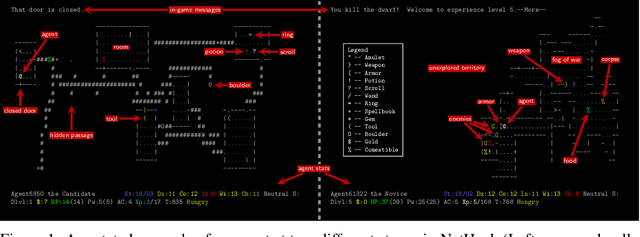
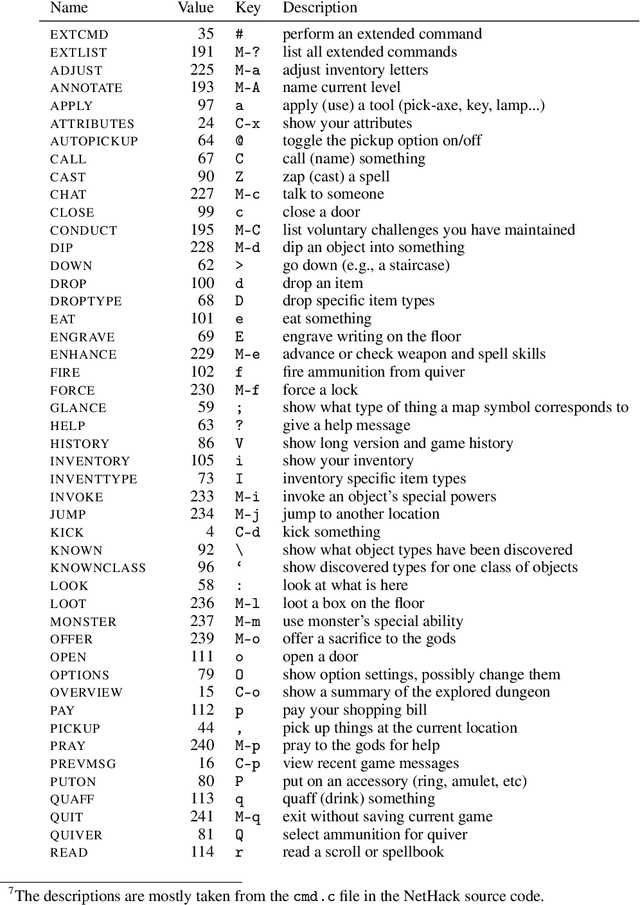

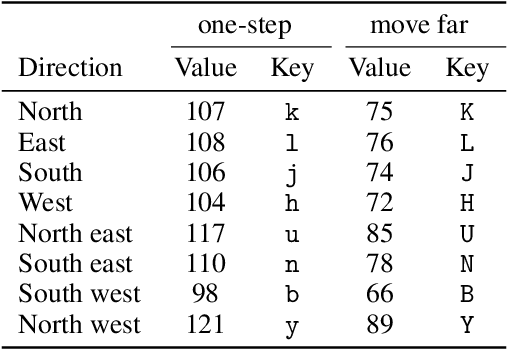
Abstract:Progress in Reinforcement Learning (RL) algorithms goes hand-in-hand with the development of challenging environments that test the limits of current methods. While existing RL environments are either sufficiently complex or based on fast simulation, they are rarely both. Here, we present the NetHack Learning Environment (NLE), a scalable, procedurally generated, stochastic, rich, and challenging environment for RL research based on the popular single-player terminal-based roguelike game, NetHack. We argue that NetHack is sufficiently complex to drive long-term research on problems such as exploration, planning, skill acquisition, and language-conditioned RL, while dramatically reducing the computational resources required to gather a large amount of experience. We compare NLE and its task suite to existing alternatives, and discuss why it is an ideal medium for testing the robustness and systematic generalization of RL agents. We demonstrate empirical success for early stages of the game using a distributed Deep RL baseline and Random Network Distillation exploration, alongside qualitative analysis of various agents trained in the environment. NLE is open source at https://github.com/facebookresearch/nle.
TorchBeast: A PyTorch Platform for Distributed RL
Oct 08, 2019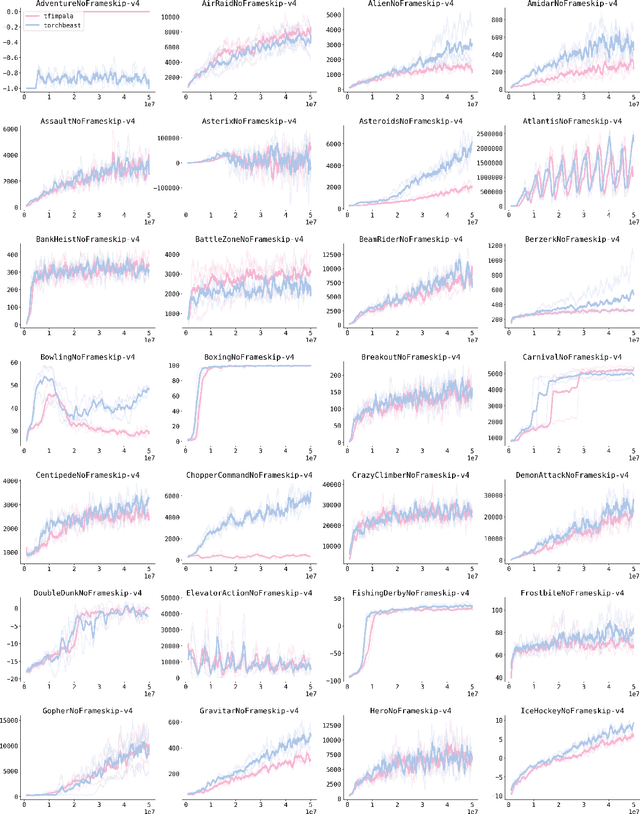
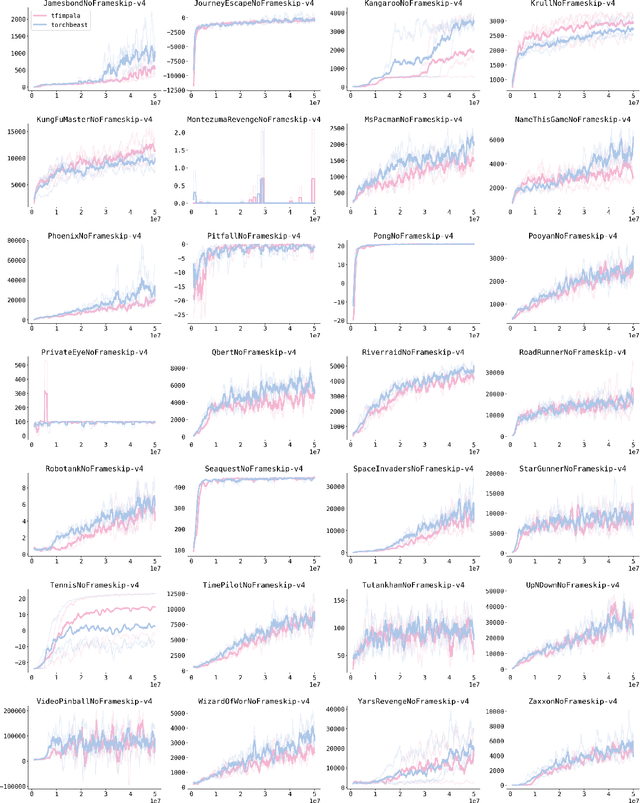
Abstract:TorchBeast is a platform for reinforcement learning (RL) research in PyTorch. It implements a version of the popular IMPALA algorithm for fast, asynchronous, parallel training of RL agents. Additionally, TorchBeast has simplicity as an explicit design goal: We provide both a pure-Python implementation ("MonoBeast") as well as a multi-machine high-performance version ("PolyBeast"). In the latter, parts of the implementation are written in C++, but all parts pertaining to machine learning are kept in simple Python using PyTorch, with the environments provided using the OpenAI Gym interface. This enables researchers to conduct scalable RL research using TorchBeast without any programming knowledge beyond Python and PyTorch. In this paper, we describe the TorchBeast design principles and implementation and demonstrate that it performs on-par with IMPALA on Atari. TorchBeast is released as an open-source package under the Apache 2.0 license and is available at \url{https://github.com/facebookresearch/torchbeast}.
 Add to Chrome
Add to Chrome Add to Firefox
Add to Firefox Add to Edge
Add to Edge